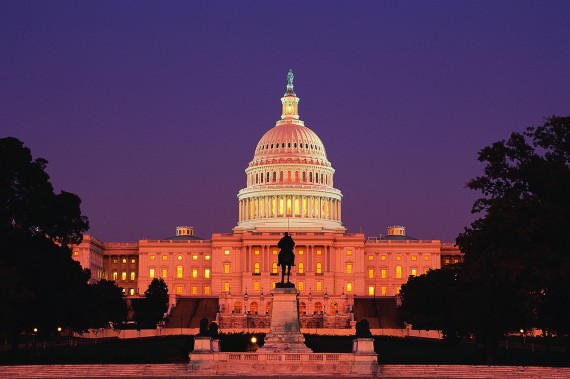Report from Washington, D.C.
March 2016 Space Hearings
Written by: developer
By Space Foundation Washington, D.C., Intern Natalie Nehme
March was extremely eventful when it came to hearings involving space in all aspects. On March 3, the House Appropriations Committee, Subcommittee on Commerce, Justice, Science, and Related Agencies held an oversight hearing on NASA’s Ocean Worlds programs. Dr. Charles Elachi, the director of NASA’s Jet Propulsion Laboratory, and Dr. Jonathan Lunine, the director of the Cornell Center for Astrophysics and Planetary Science, served as expert witnesses during a discussion about future missions to Europa and other ocean worlds. During the hearing, Dr. Elachi expressed excitement about new technologies that would enable the United States to conduct a Europa mission in two and a half years, stating, “SLS or an equivalent will revolutionize how we explore the solar system.” The hearing continued with discussion of how landing on Europa would be beneficial to discovering life on other planets.
 A week later, on March 10, the Senate Appropriations Committee, Subcommittee on Commerce, Justice, Science and Related Agencies held another hearing entitled: “A Hearing to Review the FY17 NASA Budget Request.” Many members of the Committee expressed disappointment that the Fiscal Year 2017 President’s Budget Request reduces funds for SLS and Orion when compared with FY16 appropriations. NASA Administrator Charles Bolden defended the $19 billion budget, stating that the administration has worked to produce a budget that addresses important mission directorates and supports a long-term Mars program. The topic of the RD-180 ban was briefly brought up, and although NASA would like to reduce reliance on these engines, they still are necessary for the Dream Chaser and CST-100 Starliner missions. However, a new launch system is being worked on with ULA and Blue Origin.
A week later, on March 10, the Senate Appropriations Committee, Subcommittee on Commerce, Justice, Science and Related Agencies held another hearing entitled: “A Hearing to Review the FY17 NASA Budget Request.” Many members of the Committee expressed disappointment that the Fiscal Year 2017 President’s Budget Request reduces funds for SLS and Orion when compared with FY16 appropriations. NASA Administrator Charles Bolden defended the $19 billion budget, stating that the administration has worked to produce a budget that addresses important mission directorates and supports a long-term Mars program. The topic of the RD-180 ban was briefly brought up, and although NASA would like to reduce reliance on these engines, they still are necessary for the Dream Chaser and CST-100 Starliner missions. However, a new launch system is being worked on with ULA and Blue Origin.
On the afternoon of March 15, the House Armed Services Committee, Subcommittee on Strategic Forces held a hearing to review the FY17 National Security Budget. Gen. John E. Hyten, Commander, Air Force Space Command, testified about the importance of Space Situational Awareness and the necessity of preparing for conflict in space. Later that afternoon, the House Committee on Appropriations, Subcommittee on Commerce, Justice, Science, and Related Agencies held a NASA budget hearing. Subcommittee Chairman John Culberson (R-TX) expressed concern over what he considers to be cuts to NASA’s space exploration budget. He touted the recent 18,300 astronaut applications received by NASA to fill 14 open astronaut positions as evidence of the American public’s support of NASA. In discussion of what is to be included in the budget, the topic of designing missions to outer planets and ocean worlds like Europa was brought up as a priority in addition to designing lunar missions and of course the mission to Mars.
The House Committee on Science, Space, and Technology, Environment Subcommittee held a hearing on March 16 to discuss the budget proposal for the National Oceanic and Atmospheric Administration (NOAA) for FY17. Dr. Kathryn Sullivan, Undersecretary for Oceans and Atmosphere, U.S. Department of Commerce, and NOAA Administrator, testified that the reason for the $8.1 billion budget increase request is to continue collecting radio occultation data, which is critical to predicting severe weather.
NASA Administrator Bolden returned to the Hill on March 17 as a witness to the House of Representatives Committee on Science, Space, and Technology, Space Subcommittee for another budget hearing on NASA. This hearing focused more on the amounts that have been requested and how they will affect the various programs and launches scheduled for the near future. Administrator Bolden stressed the importance of timely appropriations, stating that when appropriations are decided later than expected, the agency operates with less money than it needs and holds off on purchasing long-lead items. Despite this, Administrator Bolden maintained that Exploration Mission 1 is on track for a 2018 launch, and Exploration Mission 2 is on schedule for a launch in 2023.
This article is part of Space Watch: April 2016 (Volume: 15, Issue: 4).
